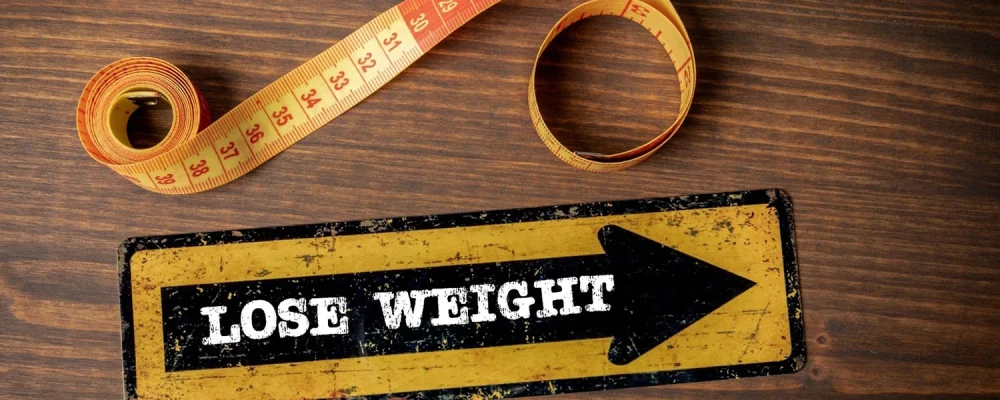People want to lose weight for many reasons and often get lured into trendy diets that promise fast results. While there are various methods out there, it’s essential to approach this process safely and with a focus on overall well-being. This article is going to offer some practical tips from experts on achieving successful weight loss that you can maintain in the long term.
Why Gaining Too Much Weight Generates Risks
Being overweight or obese puts you at a much higher risk of developing various health issues. These include not only common problems like heart disease, stroke, diabetes, and certain cancers but also less typical ones like gout and gallstones. The connection between being overweight and depression, a mood disorder that can seriously affect daily life, is also quite strong.
A Harvard study was conducted using data from two groups: over 50,000 males from the Health Professionals Follow-up Study and more than 120,000 women from the Nurses’ Health Study. The participants willingly disclosed various aspects of their lives. These aspects included details about their height, weight, food habits, daily schedules, and medical histories. The researchers observed the participants for ten years, noting any health issues that developed. They also compared the changes in each participant’s body mass index (BMI), which is a calculation of relative body fat based on height and weight.
According to the study’s results, obesity significantly raised the risk of high blood pressure, heart disease, stroke, and gallstones. The risk of diabetes was staggeringly 20 times higher in obese people. There was a strong correlation between increased BMI and higher illness risk, even among those who were merely overweight. Now, let’s have a look at some expert advice on effective weight loss that you can sustain over time.
How to Lose Weight: 10 Expert Tips

We have some tips for achieving successful weight loss, based on advice from renowned registered dietitians Ellen Albertson, Ph.D., author of “Rock Your Midlife Sugar Shock,” and Connie Bennett, author of “Beyond Sugar Shock.” These experts provide invaluable insights into transforming your lifestyle and achieving your weight loss goals. Following their advice we have listed 10 practical and proven strategies to help you shed unwanted pounds and lead a healthier life.
Implement Long-Term Lifestyle and Behavior Changes
When trying to lose weight, Albertson suggests avoiding the word “diet.” Dieting can be tough and leave you hungry, making you constantly think about food—something you don’t want while trying to shed pounds. Instead, she recommends seeing weight loss as a part of getting healthier and focusing on taking care of your body first.
According to Albertson, weight loss is complex, and you can’t fully control the number on the scale. However, you have control over what you eat, how much you move, and other factors affecting your weight, like stress and sleep. She advises setting SMART goals—specific, measurable, achievable, relevant, and time-sensitive—and rewarding yourself when you achieve them.
Reduce Your Intake of Ultra-Processed Carbs and Sweets
If you want to effectively shed pounds, it’s essential to focus on improving the quality of your food choices. Reducing the quantity of sugar and easily absorbed carbs in your diet is one of the best ways to lose weight. High-glycemic-load foods like sugary snacks, processed carbs, and soft drinks should be limited or avoided altogether. Instead, opt for more nutritious options to support your weight loss journey. Cutting back on items like French fries, chips, and crackers can help speed up your weight loss journey.
A Healthy Diet Plan
A healthy diet plan forms the foundation for overall well-being and vitality. It involves a balanced approach, incorporating a diverse range of nutrient-rich foods that nourish the body and mind. Among many diet plans, plant based diets are proven to be more effective for weight loss. According to studies, a plant-based supper promotes weight loss and is simpler to follow than a low-calorie diet. Moreover, it’s packed with essential nutrients and offers numerous health benefits.
A plant-based diet supports weight loss because it’s high in fiber and water, which fill up your stomach without adding extra calories.You can begin your day with a green smoothie, include salads or cut-up veggies with your lunch, and enjoy fruits as snacks or desserts. Add more stir-fries, add veggies into pasta dishes, or stir them into soups for dinner. These simple changes can greatly affect your weight loss journey and overall health.
Add More Superfoods
Superfoods might be a great addition to support your efforts to lose weight. These superfoods’ nutrients, antioxidants, and fiber can make you feel full and satisfied while ingesting fewer calories. Some examples of superfoods include berries, leafy greens, avocados, and nuts. You can easily include them in your meals and snacks to boost your nutrient intake and aid in shedding those extra pounds.
Add Good Fats
Good fats, such as the ones found in olive oil, avocados, and almonds, can help lessen hunger and keep you fuller for longer. This means you’re less likely to overeat which in turn can reduce your overall calorie consumption. So, incorporating these healthy fats into your diet can be beneficial for maintaining a balanced and satisfying eating pattern.
They also play a crucial role in supporting various bodily functions. Just be mindful of portion sizes, as even healthy fats are calorie-dense. By sensibly incorporating these good fats into your meals, you can enhance your weight loss efforts and maintain a balanced diet.
Stay Hydrated
According to research, increasing your water intake can help you lose weight even if you don’t change your diet or exercise. You will feel fuller and have less cravings for sugary snacks when you drink enough water. Additionally, water is essential for the body’s lipolysis process, which burns fat.
A great water intake recommendation is the “eight by eight rule”: drink eight ounces of water eight times a day. Jordan Morello, a celebrity trainer from Florida who works with Sweat Factor, suggests this simple approach to his clients. They’re often surprised at its effectiveness in curbing cravings and keeping them satisfied throughout the day. Another helpful tip is to have two cups of water before each meal. In case you don’t like the natural taste of water, you can try smoothies or add water enhancer to enjoy an enhanced flavor. So, staying hydrated may be key to achieving your weight loss goals.
Add More Protein
Eating more protein can help control your appetite and prevent muscle loss. Dr. Albertson suggests having about 25 to 30 grams of protein per meal, equivalent to two scoops of protein powder or a 4-ounce serving of chicken breast. Ensuring you include one serving of high-quality protein in each meal can be beneficial for managing your body weight.
For women over 50, getting more protein, about 1 to 1.5 g per kg of body weight daily, is important. This is higher than the protein needed by men and younger women, who require around 0.8 grams per kilogram of body weight daily. The reason for this is that women need more protein as they get older, especially during menopause, as the decline in estrogen hormone can lead to a loss of muscle mass, strength, and regenerative capacity. So, incorporating enough protein into your diet becomes increasingly important as you age.
Don’t Skip Breakfast
Skipping breakfast isn’t the way to go if you’re trying to shed pounds. Studies consistently show that people who skip breakfast tend to be overweight or obese.
But hold on, don’t just eat any breakfast. It would help to have a balanced first meal to stay focused, perform well, and feel happier. Have a breakfast with enough protein, healthy fats, and quality carbs like fresh berries. If you often skip breakfast because of your busy schedule, you can also try meal replacements, which come in various flavors and are widely available. It’s a surefire way to keep your blood sugar in check and get the day off to a great start!
Stand Up and Move More
One of the easiest ways to lose weight is by increasing your non-exercise activity thermogenesis (NEAT), the energy you use for everyday activities besides eating, sleeping, or working out. Simple changes like carrying your groceries instead of using a cart, parking farther from the mall entrance, taking the stairs instead of the elevator, or tapping your toe can help you burn hundreds of extra calories.
Another effective tip is to stand more and sit less. Studies have shown that replacing sitting with standing can boost your daily energy expenditure, leading to more calories burned and, ultimately, weight loss. For example, if you weigh 160 pounds and alternate between sitting and standing, you can burn about 35 extra calories per hour. This adds up to 280 calories per day, 1,400 per week, and approximately 70,000 per year.
To stay on track, set a reminder on your phone, Fitbit, or computer to prompt you to get up and move around every hour. So, consciously incorporate more movement into your daily routine to achieve your weight loss goals.
Get More Sleep
Having a healthy weight and overall well being depend on getting adequate sleep. Research suggests insufficient sleep is linked to weight gain and various health issues. For instance, a study involving 68,183 middle-aged American women over 16 years revealed that those who slept for five hours or less per night had a 15% higher chance of obesity than those who slept seven hours a night.
Poor sleep can also disrupt the production of hormones that regulate appetite, making people hungrier throughout the day. Additionally, it raises cortisol levels, leading to difficulty in losing body and belly fat. To improve your sleep, consider these tips: aim for seven to nine hours by counting back from your wake-up time. Try following the 3-2-1 rule:
- Stop working three hours before bedtime.
- Avoid eating two hours before bed.
- Limit digital stimuli one hour before bed.
These habits can promote better deep sleep and REM cycles, enhancing your overall sleep quality.
Why Losing Weight Fast Isn’t Always Good?

Many people are drawn to losing 5 pounds weekly, but quick weight loss may work against your long-term goals. When you lose weight rapidly through crash diets, you often lose more muscle and water weight than fat, making it hard to maintain the results. Maintaining lean muscle is essential for weight loss because it helps boost your metabolism and burn more calories. Unfortunately, fast weight loss can lead to muscle loss and a slowdown in calorie burning, which can even negatively impact your metabolism.
Moreover, rapid weight loss can often trigger increased appetite and decreased metabolism, making it tough to keep the weight off. Researchers have found that for every pound lost, our bodies prompt us to eat around 100 calories more per day. Crash diets and fad weight loss plans frequently lead to nutrient deficiencies and can cause the body to lose more water weight than actual fat, especially if carbohydrates are significantly restricted. This can further reduce metabolism since muscle mass, which is metabolically active, might be used as fuel.
It’s best to approach weight loss sensibly and gradually. Experts recommend losing about half a pound to 2 weekly for sustainable results. To achieve this, focus on proven methods to lose weight and maintain a healthy lifestyle in the long run.
FAQs
What is a Healthy Rate of Weight Loss?
A healthy weight loss rate is typically between 0.5 and 2 pounds (0.2 and 0.9 kg) each week. This gradual approach allows your body to adjust to the changes and helps you maintain lean muscle mass while losing fat.
Do Weight Loss Supplements Work for Fast Results?
Many weight loss supplements claim to offer quick results, but their efficacy is often questionable, and some can have harmful side effects. Always consult with a registered dietitian before trying any weight loss supplements.
Is it Necessary to Skip Meals to Lose Weight Fast?
Skipping meals is not advisable for weight loss. It can slow your metabolism, cause blood sugar imbalances, and lead to overeating later in the day. Opt for balanced and regular meals to support your weight loss goals.
Final Thoughts
Losing weight quickly may be enticing for many individuals seeking to shed unwanted pounds rapidly. However, it is essential to approach this goal with caution and mindfulness. While certain strategies can promote rapid weight loss in the short term, such as extreme calorie restriction or fad diets, they often come with potential health risks and are rarely sustainable in the long run. To achieve lasting and healthy weight loss, adopting a balanced approach that combines a nutritious diet, regular physical activity, and a realistic mindset is crucial.
Ultimately, a well-balanced and patient approach to weight loss is more sustainable, promotes better overall health, and fosters a positive relationship with one’s body. Remember, a healthy lifestyle is not defined by speed but by consistency, self-care, and adopting lifelong habits that contribute to long-term well-being.
RV Team
* Reviewology is in partnership or collaborates with top brands highlighted on this site, including those occupying the top ranking positions.
Additionally, we earn affiliate commissions from products showcased on this website when you make a purchase through the provided links on Amazon or the company website directly.
We appreciate your support using our links to purchase your favorite brands or newly discovered brands.
Latest updates
I Thought I’d Always Feel Tired, Fat, and Forgotten—Until This
310 Greens vs AG1
The Truth About 310 Greens: A No-Nonsense Review of This Popular Supplement
Popular
I Thought I’d Always Feel Tired, Fat, and Forgotten—Until This
310 Greens vs AG1
The Truth About 310 Greens: A No-Nonsense Review of This Popular Supplement
© 2024 Reviewology. All Rights Reserved.
